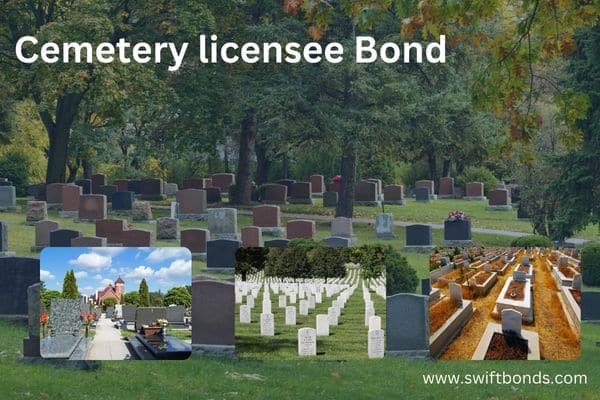Introduction
When stepping into the world of entrepreneurship, understanding the nuances of business licensing and bonds is essential for any new business owner. The landscape can appear daunting at first glance, but breaking it down into manageable pieces reveals a wealth of information that can empower you in your journey. In this comprehensive guide, we’ll performance bonds delve deep into what business licenses and bonds are, why they matter, and how to navigate the application processes successfully.
Understanding Business Licensing
Before diving into the specifics, let’s clarify what we mean by "business licensing." A business license serves as a permit issued by governmental entities that allows individuals or companies to conduct business within their jurisdiction. This can range from local permits to federal registrations depending on the nature of your operations.
What is a Business License?
A business license is essentially your ticket to legally operate your business. It signifies compliance with local regulations, which vary significantly from one region to another. Whether you're running a home-based bakery or a large construction firm, you will need to secure the necessary licenses relevant to your industry.
Types of Business Licenses
Local Business Licenses: Required by cities or counties. State Business Licenses: Required for specific professions such as medical practitioners or attorneys. Federal Business Licenses: Necessary for industries regulated by federal agencies (e.g., alcohol distribution).The Importance of Business Licensing
Having the proper licenses not only keeps performance bonds requirements you compliant with local laws but also builds credibility among customers and partners. Without these licenses, you could face fines or even shut down operations.
A Beginner’s Guide to Business Licensing and Bonds
Business licenses often go hand-in-hand with bonds, especially in regulated industries. Understanding both concepts is crucial for ensuring that your venture starts on solid ground.
What Are Bonds?
Bonds are essentially contracts between three parties—the principal (you), the obligee (the party requiring the bond), and the surety (the bonding company). They serve as a form of financial guarantee that you will fulfill your obligations.
Different Types of Bonds
Contractor Bonds: Commonly required in construction projects. License and Permit Bonds: Ensure compliance with state regulations. Court Bonds: Often required during legal proceedings.Why Do You Need a Bond License?
A bond license ensures that you are financially capable of completing projects and adhering to regulations set forth by authorities. It acts as a security measure protecting clients against potential losses due to non-compliance.
Navigating the Licensing Process
Let's break down how you can effectively navigate through obtaining your business license:
Step 1: Research Local Requirements
Every locality has its own requirements for obtaining a business license. Begin by researching online or calling your local government office for information specific to your industry.
Step 2: Prepare Your Documentation
Gather all necessary documentation such as identification, tax information, and any certifications needed for your particular field.
Step 3: Complete Applications Accurately
Filling out applications may seem straightforward but ensure accuracy; mistakes can delay processing times or result in rejection.
Step 4: Pay Fees Promptly
Most licensing authorities require payment when submitting applications. Be prepared for fees that vary widely based on location and type of license.
Understanding Bonding Requirements
Once you've grasped licensing basics, it’s crucial to understand bonding requirements associated with your business.
What Determines Bonding Amounts?
Bond amounts typically depend on several factors:
- Type of industry Size of contracts Credit history
How to Obtain a Bond License?
Step 1: Evaluate Your Needs
Identify which types of bonds are necessary for your industry—this will inform how much coverage you'll need.
Step 2: Shop Around
Different bonding companies offer varying rates; it pays to compare options before making decisions.
Step 3: Apply Through Surety Companies
Submit an application with relevant documents detailing your financial status and experience in the field.
FAQs About Business Licensing and Bonds
1. What happens if I operate without a license?
Operating without a license can lead to hefty fines or even closure of your business due to legal repercussions.
2. How long does it take to obtain a business license?
The time frame varies significantly but generally ranges from a few days to several weeks depending on local regulations and processing times.
3. Can I transfer my business license if I move?
In many cases, yes—but you'll need to check with local authorities regarding their rules on transferring licenses across jurisdictions.
4. What is the cost associated with obtaining bonds?
Costs vary based on bond type, amount needed, and personal credit scores; typically ranging from 0.5% - 15% of the total bond amount.
5. Is there an annual renewal process for licenses?
Yes! Most licenses require annual renewal along with payment of renewal fees; neglecting this requirement may result in penalties.
6. Can I apply for multiple licenses simultaneously?
Yes! Many entrepreneurs choose this route especially if they operate across various sectors requiring different licenses simultaneously.
Conclusion
In summary, understanding both business licensing and bonds is essential for any budding entrepreneur seeking success in their ventures. By ensuring compliance through appropriate licensing while securing necessary bonds, you're building a foundation that not only protects you legally but also enhances trustworthiness in the eyes of clients and partners alike.
Navigating this landscape might seem overwhelming initially; however, armed with knowledge from “A Beginner’s Guide to Business Licensing and Bonds,” you’re well-equipped to tackle these challenges head-on!

Remember that each step taken toward compliance only strengthens your position within your chosen market—so get started today!